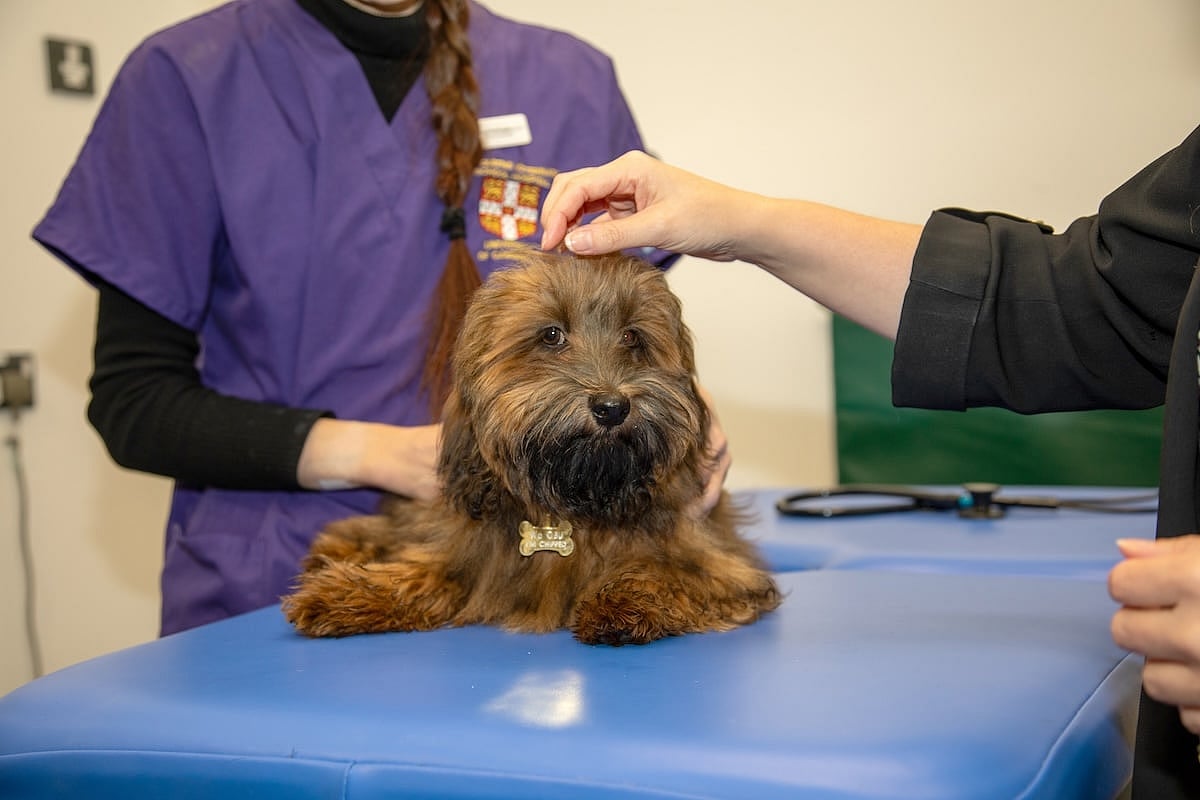Get Healthy!

- Dennis Thompson
- Posted May 20, 2025
Pets Might Be Adding To Antibiotic Resistance
Antibiotic resistance is a growing threat to human health, as germs like E. coli and staph gain the power to overcome even the most powerful bacteria killers.
Unfortunately, the health care we provide to our dogs and cats is likely making the problem worse, researchers have reported.
Steps are being taken to use antibiotics more judiciously in humans, but it might all be to naught if those same measures aren’t also applied to our household pets, experts say.
“If you look at the comparison charts specifically for dogs and cats versus people, the types of antibiotics used are much more similar -- sometimes even the exact same antibiotics,” said Dr. Claire Fellman, an associate professor at Tufts University Cummings School of Veterinary Medicine.
“For example, amoxicillin and clavulanate combined make Clavamox for animals and Augmentin for people,” she said in a news release. “It's one of the top antimicrobials that's prescribed, and it’s literally the exact same drug being prescribed for dogs and cats as for people, in similar proportions and frequencies, and often for similar conditions.”
But infectious disease is not considered a discipline within veterinary medicine, as it is in human medicine, and as a result resistance control is falling by the wayside, Fellman and her colleagues warn.
Human hospitals are required to have an antimicrobial stewardship program in place to receive federal funding from Medicaid or Medicare, researchers noted.
But only half of veterinary schools have an antimicrobial stewardship committee set up to combat antibiotic resistance, according to a survey published in November by the American Veterinary Medical Association.
Lack of dedicated staff time was a common barrier to efforts to control antibiotic resistance, the survey found, with 9 out of 10 schools citing that reason.
About 80% of schools incorporate antimicrobial stewardship into their classes for students, but only 2 in 5 have similar training for faculty (17%), veterinary technicians and support staff (21%), the poll found.
Vets are more often being faced with cases of antibiotic resistance, said Dr. Ian DeStefano, an assistant clinical professor at the Tufts University Cummings School of Veterinary Medicine.
“Often when people come to us, it's with test results that indicate an infection caused by bacteria that has some level of antibiotic resistance, such as a dog with recurrent urinary tract infections that has been treated with multiple antibiotics and now has a very resistant bacteria found on culture,” DeStefano said.
Luckily, vets can look to human medicine for some clues on antibiotic resistance.
“Sometimes, veterinarians can take expertise from antimicrobial stewardship in humans and apply similar lessons to animals. We look at that a lot when it comes to the duration of treatment,” Fellman said. “Our antimicrobial treatment courses used to be longer but are now often shortened after many studies in people supported decreased durations. There are a lot of parallels.”
Veterinarians also are learning from experience when antibiotics are likely being overused.
“When people have pets that go into surgery, sometimes the animal gets an antibiotic to prevent a surgical site infection. We're now recognizing, a lot of those times, that’s unnecessary,” Fellman said.
“As another example, metronidazole has often been prescribed to help with acute diarrhea in dogs, but now studies show it doesn’t make a significant difference, so metronidazole prescribing has gone down at our hospital,” he added.
More information
The World Health Organization has more on antimicrobial resistance.
SOURCES: Tufts University, news release, May 15, 2025; Journal of the American Veterinary Medical Association, Nov. 1, 2024




